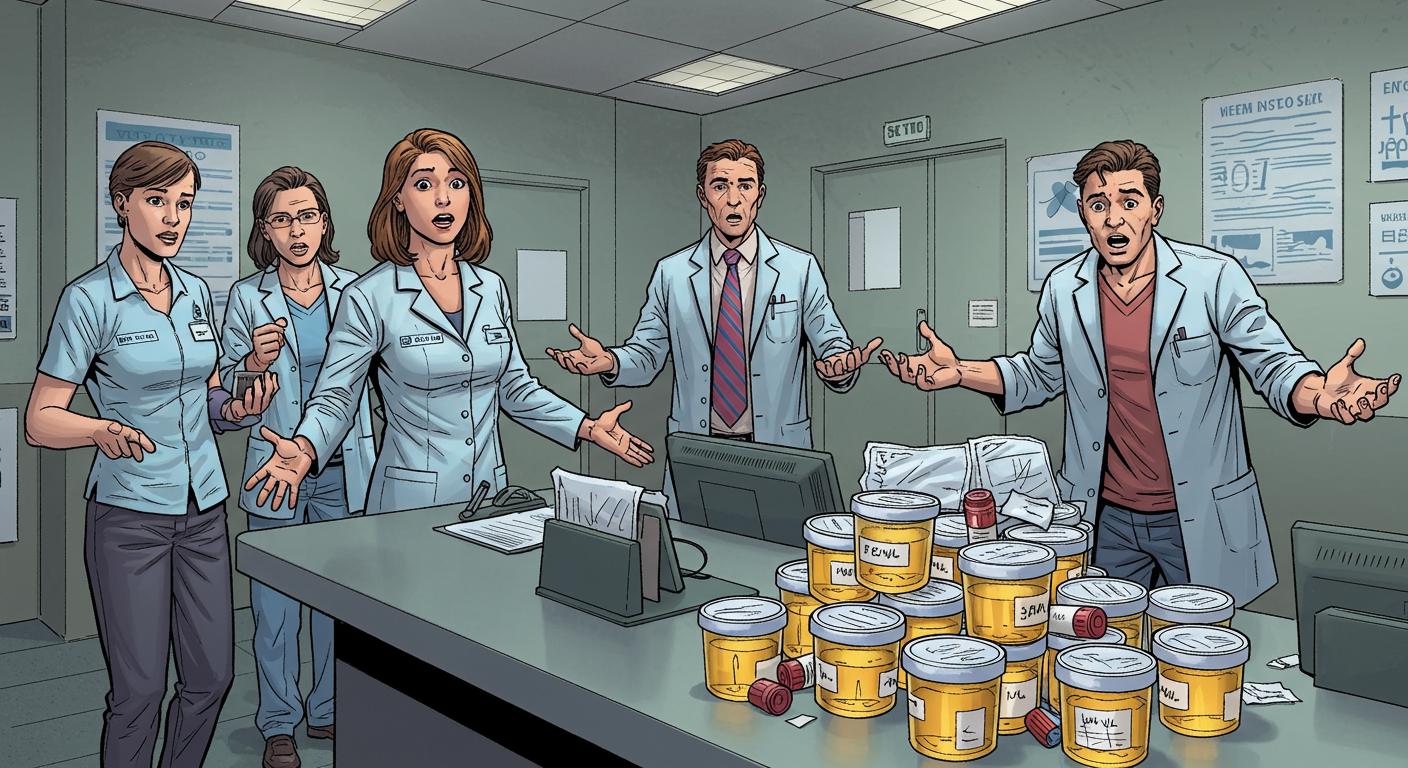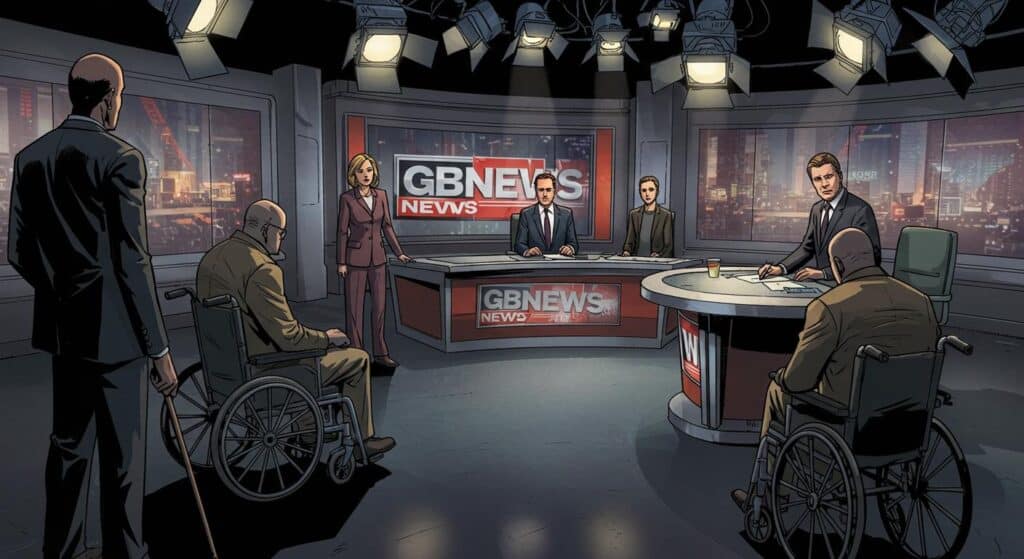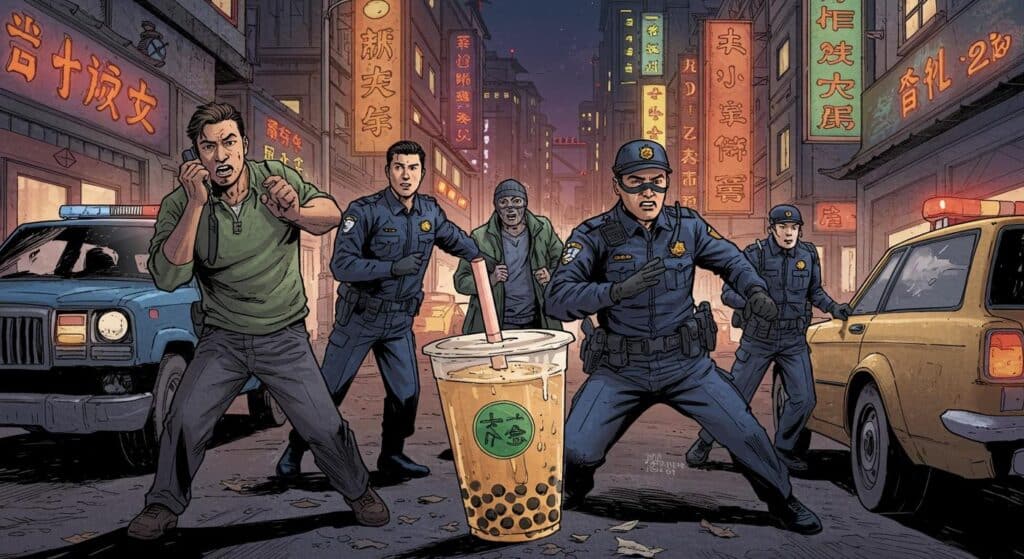There are moments when the distance between daily routine and the surreal becomes so thin, you could poke a hole straight through with a urine sample in a coffee jar. The residents around Fraserburgh, Aberdeenshire, seem to have found that membrane—and the results are, depending on your perspective, either concerning, comical, or perhaps both.
According to a recent report by UPI, the Saltoun Surgery clinic in Scotland has issued a public plea: please stop dropping off random urine samples. Not only are these unsolicited donations unhelpful, say clinic staff, but they sometimes arrive in containers best described as “creatively repurposed.” Tupperware and marmalade jars, one suspects, seldom grace the shelves of a pathology lab.
Not-So-Golden Deliveries
The announcement—delivered with typically understated Scottish decorum—explains that the clinic simply can’t accommodate the “high volume” of unsolicited offerings. In a twist worthy of a sitcom cold open, the staff are inundated with unrequested urine tests, handed over the counter in everything from jam jars to whatever was handy that morning. As UPI highlights, the issue isn’t just the number of samples, but also the unpredictability of what’s inside (and what it’s inside of).
Saltoun Surgery responded with measured clarity on social media, stating that unless a urine sample has been specifically requested, it’s best kept at home—preferably not sharing shelf space in the fridge with tomorrow’s breakfast spread. There’s apparently enough impromptu urinalysis going around that Saltoun Surgery needed to clarify this with both signage and a public announcement.
Process Before Sample
Dig a little deeper, and there’s a kernel of everyday practicality behind the request. As detailed by UPI, a British Medical Association Scotland representative explained that clinicians need to actually assess patients before interpreting test results. Processing every unsought sample takes up time, medical supplies, and, perhaps most crucially, staff energy—every bottle must be tested, its donor hunted down for further information, and then possibly shipped off for additional labs.
Quoting a doctor who spoke anonymously to The Times of London—as recounted in UPI’s coverage—multiple clinics have now resorted to posting signs to curb the flow of makeshift specimens. The same doctor, via UPI, offered a reminder: the diagnosis doesn’t start in the kitchen, and that empty jam jar wasn’t designed for medical transport. The pattern, as described in the article, typically involves older patients worried about urinary tract infections—good intentions perhaps matched only by their inventive choice of containers.
The Unintentional Folk Art of Sample Submission
There’s something both deeply human and quietly hilarious about the whole predicament. The impulse behind these unexpected samples is presumably sincere; anxieties mount, and rather than wait, people take biological matters into their own hands (sometimes literally). It’s easy to imagine, even if UPI stops short of specifying, a growing collection of pasta sauce jars and sports drink bottles lining the clinic’s intake counter—each one a token of a community determined to meet health challenges head-on, however unconventionally.
It also speaks to a fascinating intersection of medical literacy and DIY spirit. Saltoun Surgery’s predicament isn’t about a community gone rogue, but rather a community that’s—perhaps too enthusiastically—embracing a hands-on approach to healthcare. Leave it to humanity to turn “consult your doctor” into “consult your kitchen, then consult your doctor, just in case.”
A Teachable Moment (With a Hint of Marmalade)
The clinic’s stance is refreshingly reasonable: they want to perform the right tests, on the right specimens, for the right reasons—and, ideally, in the right containers. UPI further notes that Saltoun Surgery isn’t the only clinic drawing this particular line in the sand. Multiple UK clinics, according to accounts relayed through UPI from other outlets, have reportedly erected signs to stem the unexpected tide of household container samples.
So, where do we go from here? Perhaps there’s comfort to be found in the fact that, faced with medical uncertainty, people still try to take initiative—even if that initiative sometimes arrives unnecessarily and with an after-hint of breakfast jam. Is it a misunderstanding, a quirk of local culture, or simply a reminder that when instructions aren’t clear, people improvise in ways no policy manual could predict?
Either way, Saltoun Surgery’s polite request is a snapshot of the odd places where good intentions, mild confusion, and everyday life inevitably mix. Perhaps the next time you consider a trip to the clinic, leave the Tupperware at home—unless it’s for lunch.
Does this inspire any lingering questions about the things we’re sure we’re supposed to do, or just reinforce the ever-expanding archive of humanity’s well-meant misadventures? The answer, as usual, probably depends on which side of the reception desk you’re on.







